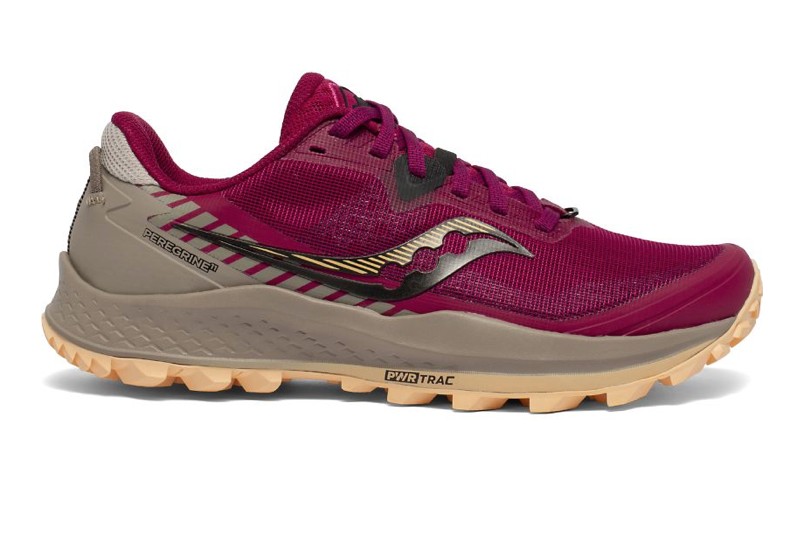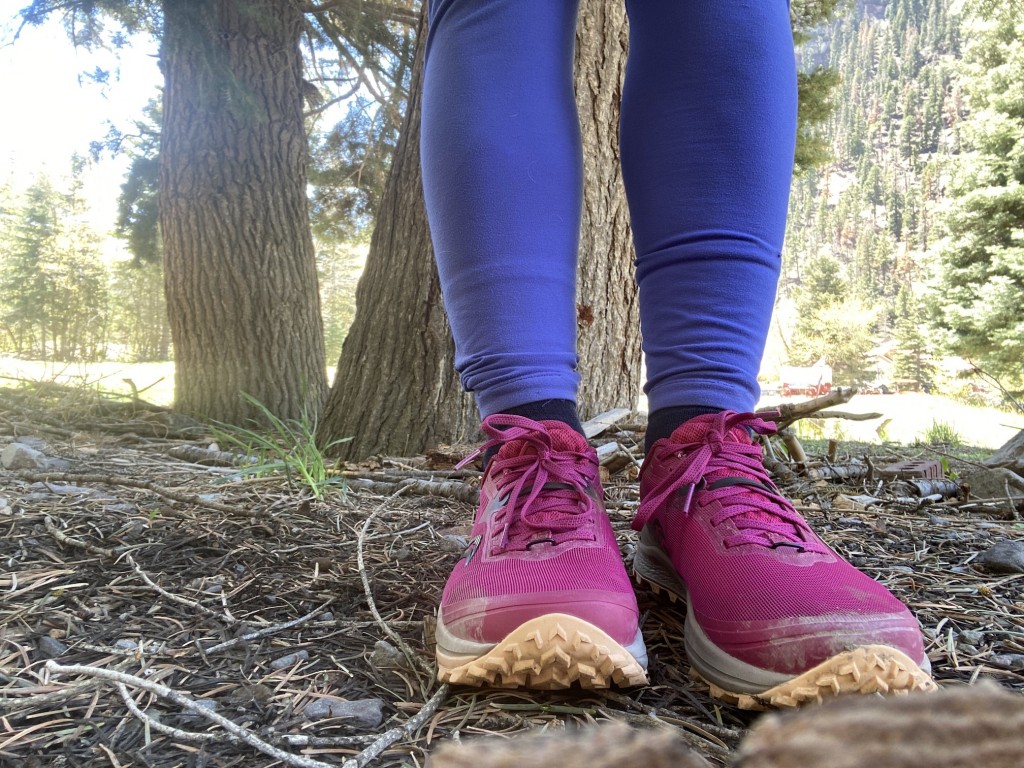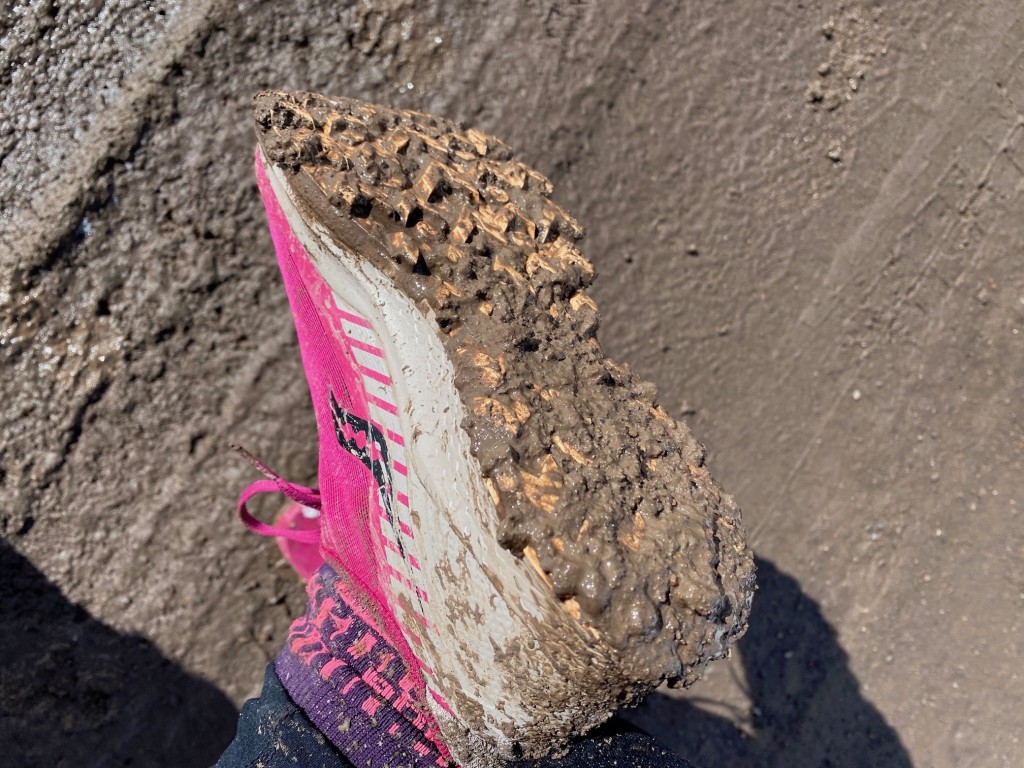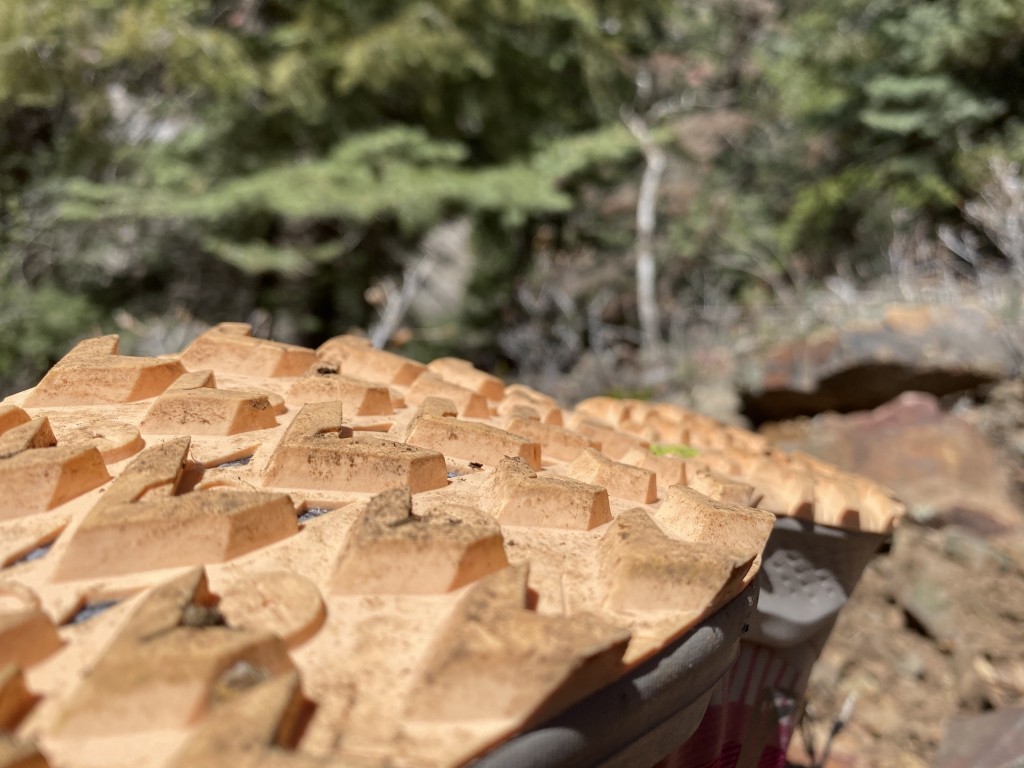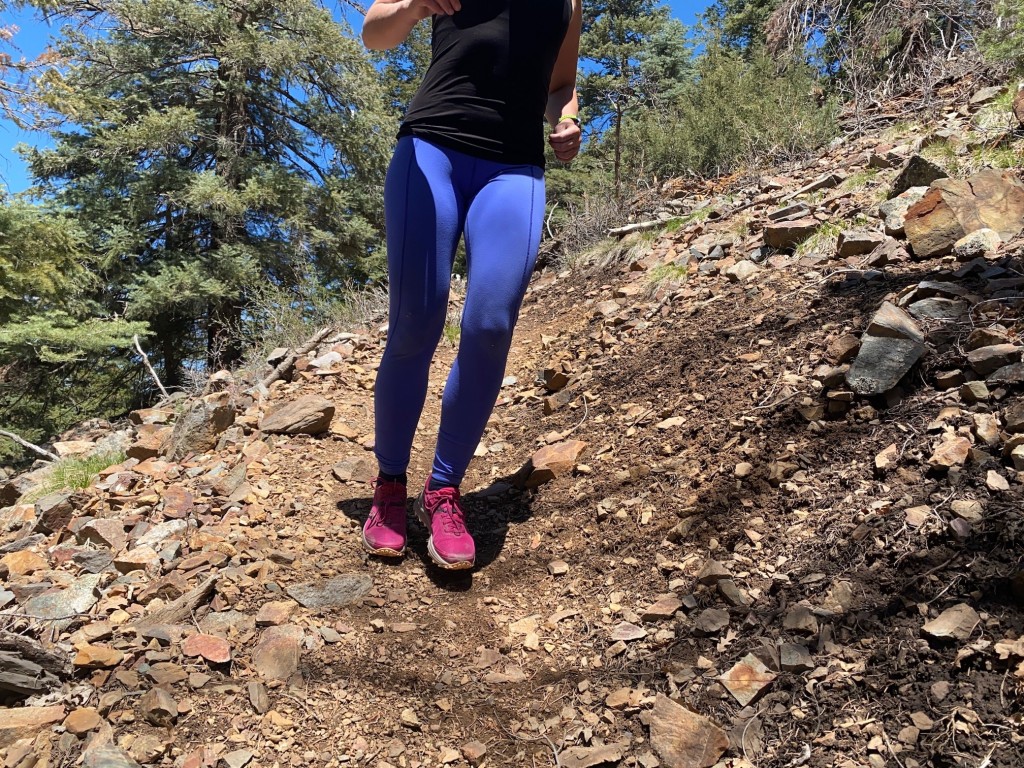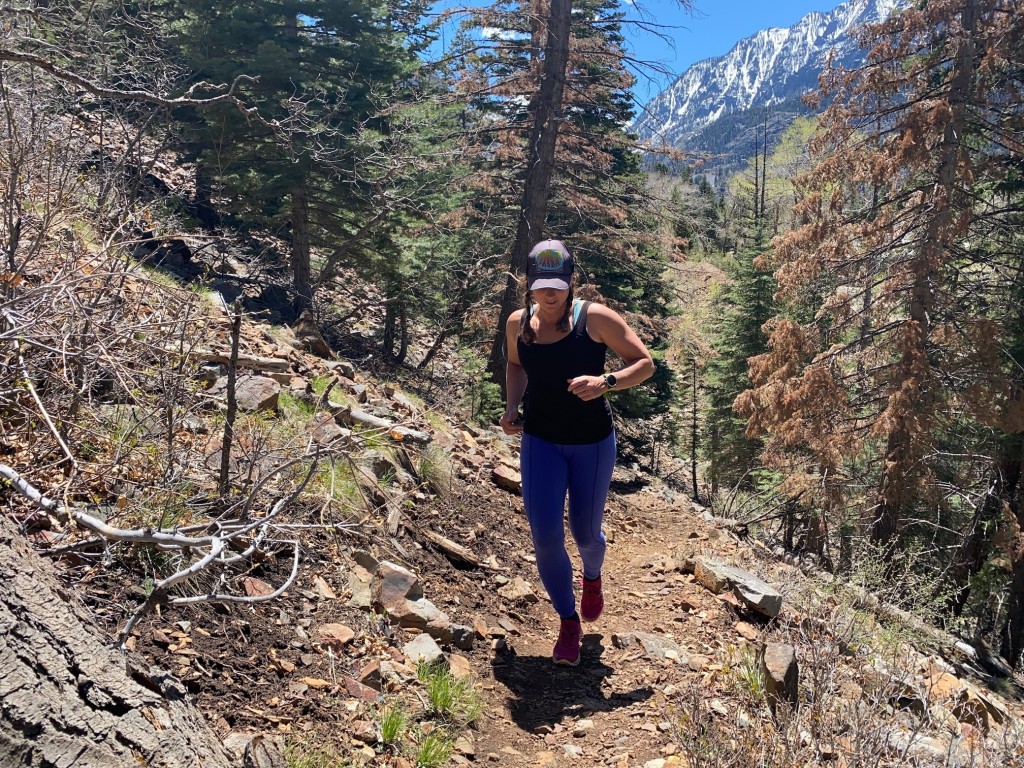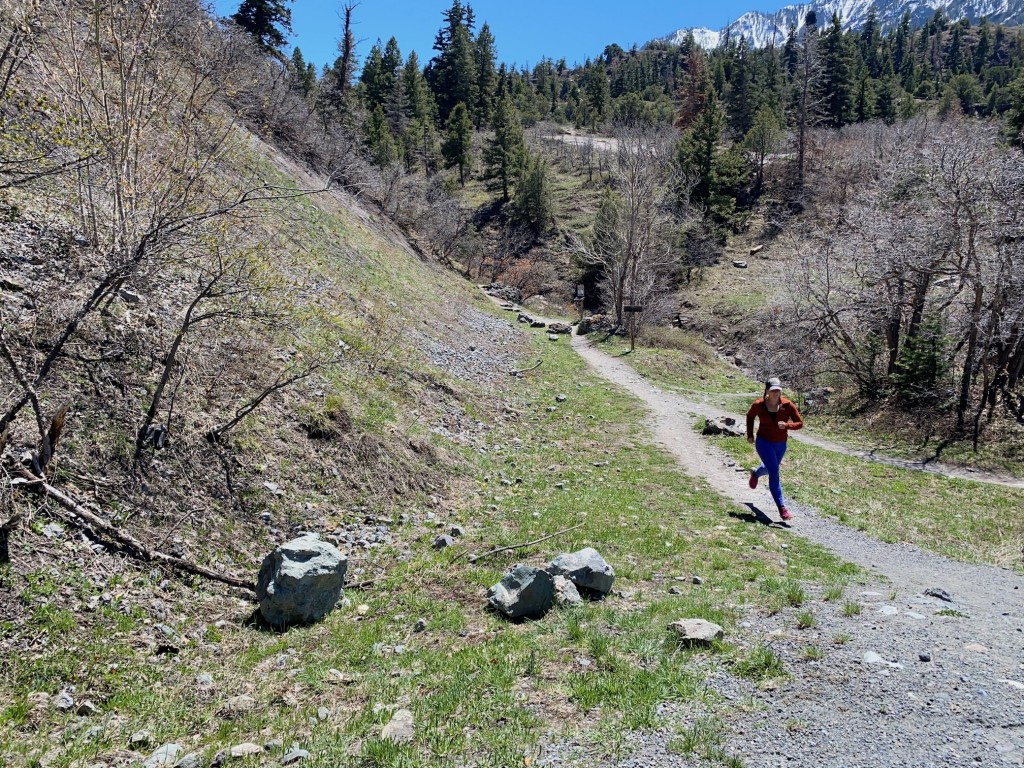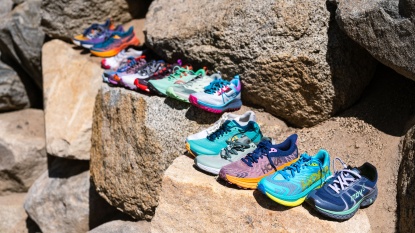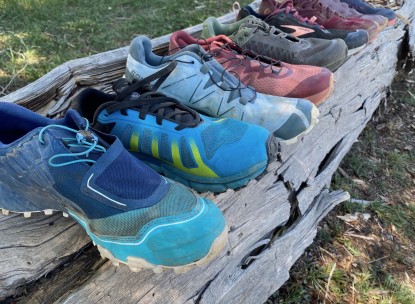Saucony Peregrine 11 - Women's Review
Our Verdict
Our Analysis and Test Results
The Saucony Peregrine 11 stands out as a versatile trail runner that offers incredible value. The newest update introduces a new upper design with more volume in the forefoot and a “more durable” mesh. Whether you're training for a longer distance or getting out on your first trail mile, it is an excellent choice.
What's New With the Saucony Peregrine 11?
Here's a look at the comparative differences between the Peregrine 11 and the past model, the Peregrine 10.
- Updated mesh in the upper that seems more rigid and durable
- A touch heavier (10 oz vs. 9.8 oz)
- TPU overlays don't wrap up to the laces
- More volume in the toe box
- An extra eyelet for lacing (6 vs. 5)
- New loop pull on the heel
Performance Comparison
Foot Protection
We love the excellent protection from underfoot hazards like sharp rocks, roots, and stubbed toes. The overlay mesh is tightly knit, offering protection from rouge particulates while the rock plate and thicker underfoot cushioning support underneath. If you plan to hit more technical trails, the Peregine 11 will help keep your foot protected.
We tested this contender will running on single track and county roads through the Winter and Spring in Arizona and Colorado. We hit rocks, roots, snow, kitty litter, trailless terrain, and more. The underfoot cushioning (27mm at the heel, 23mm in the forefoot) is noticeably plush, which shields your foot from any underfoot dangers.
The mesh is tightly knit and breathes relatively well in warm weather. Sand can still get kicked up above the collar, but we didn't notice any particulates getting through the mesh itself. The new, “more durable” mesh (as Saucony claims) absorbs less water and dries quicker than other iterations. Unfortunately, it lacks a water drainage system. So for light rain, it's great, but after submerging your foot, it takes more time for the water to drain than other options with holes in the front of the shoe.
Traction
We love this shoe's outsole. It's aggressive with trail-biting lugs that do well on both soft and hard surfaces. While the lugs aren't as long as trail shoes designed explicitly for soft mud or grass, it still does the job. The new outsole from the last update is still one that we love and remains unchanged in this iteration.
We've tested this shoe over mud, snow, wet rocks, hard dirt, and kitty litter. The rubber compound is soft and malleable, which grips harder rocks for excellent scrambling capabilities. The lugs are deep and multidirectional, aiding to keep you upright on both steep and slippery terrain.
Overall, for a lower-priced shoe option, this is one of the best simply because of the excellent traction that it offers. We put in over 150 miles in the last version, and the lugs still don't look worn down. The new outsole has the same materials and design, so we dare to say the outsole is quite durable.
Sensitivity
The PWR RUN midsole and rock plate of the Peregrine 11 offer a wealth of protection without sacrificing sensitivity. Expect to feel the trail underfoot, but with a protective cushioning layer in between. While it's not the most sensitive shoe out there, it has just the right amount of sensitivity to have you running with confidence.
We wore this shoe while running on a fairly rocky trail laced with ice in the San Juan mountains. In all cases, we could feel the ground underfoot. When your foot lands, the embedded rock plate does good work to spread out the impact, so your foot can land flat. This shoe is also a little more rigid than other flexible contenders. So while you can feel the trail underfoot, it protects so your feet don't get beat up after just a couple of miles.
Stability
This shoe offers a broader foot platform but has a fairly steep side transition from the collar to the outsole and a larger amount of cushioning. Thus, it feels a touch less stable than other options. It also doesn't integrate any stability features like shanks. Additionally, the upper has lost the TPU skeleton featured on the previous model, which we felt added a little more rigidity, and thus a bit more stability. While we think this trail runner is a good option for technical terrain, it requires a little more caution when running, especially if you're prone to rolling an ankle.
With 27mm of cushioning packed into the heel (and 23mm at the forefoot), it feels like you ride a little higher in the Peregrine 11 than options with less cushioning. We do like that the forefoot has a wider platform that offers a nice landing zone, feeling more stable than narrower competitors. Though the shoe's sidewall (or bumper) is more straight up and down than sloped, which means the rolling tipping point is more pronounced.
Since the shoe is more flexible in the upper than some, it provides some wiggle room for stability when running over uneven and rocky terrain. You can adjust your toes, position, and body. We didn't have any issues with rolled ankles, but we found ourselves watching our foot placement more than with other more stable contenders.
Comfort and Fit
Comfort and fit will dictate how often you reach for this shoe when you head out on a run. This shoe features a regular and neutral fit. It has a 4mm drop from heel to toe, with just the slightest hint of arch support. We think the heel is well fitted, and you can tighten down the laces to keep your foot from moving, which is important for steep downhill sections. It loads lots of cushioning underfoot to make it suitable for miles of trail wandering. In addition to the comfort of your footwear, items such as running socks and a great pair of running shorts also make a difference in how many miles you can log comfortably.
The upper of the Peregrine 11 is slightly more rigid than the previous version, but it's still mobile and moves well with the foot. The collar is thin and articulates well, while the tongue is cushioned and cozy. The back of the collar uses a little more cushioning than the previous model, and it doesn't pinch on the Achilles.
The foot box offers a little more wiggle than other shoes with a regular fit. In fact, the newest version seems to have more volume top to bottom than the previous, which is a welcome change. You can adjust the laces as you please to get a more specific fit. Overall, we deem this a very comfortable shoe.
Weight
For trail runners, this shoe scores smack dab in the middle. A size nine weighs 10 oz, making this newer update a teensy bit heavier than the previous version. On the foot, it doesn't feel bulky or boaty. It instead feels light and streamlined.
Should You Buy the Saucony Peregrine 11?
The Peregrine 11 is an excellent shoe that offers impressive performance and traction for a wide variety of surfaces and conditions. While its main caveat is that it lacks a drainage system, we are happy to call this one of the better deals that you'll find on the market. Plus, it has lasted longer than other top performers, logging 500+ miles before being ready to be retired (in the last iterations). The performance is similar to other high-performing contenders with a price tag that's a bit more affordable than others. A great deal? We think yes. If you're looking for a great deal and appreciate responsive protection with an outsole that is more aggressive than most, look no further.
What Other Trail Running Shoes Should You Consider?
The Saucony Peregrine 11 is a versatile trail treader ready to take on all types of surfaces. It offers excellent cushioning throughout the midsole, with a little extra in the heel. Renowned for its level of performance, it earns it a place amongst the best trail runners at a price that is easy to digest. While it is a great shoe, other options rank higher and might be a better fit depending on your needs. The Salomon S/Lab Ultra 3 is one of our favorite shoes. It scores better than the Peregrine in every metric but has a higher price tag to match the outstanding performance. The Salomon Speedcross 5 is in the same price range and has many of the same strengths as the Peregrine, but it is a bit heavier.


